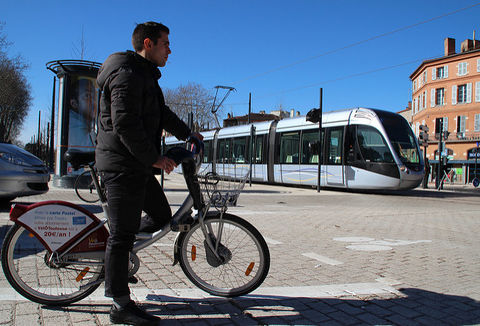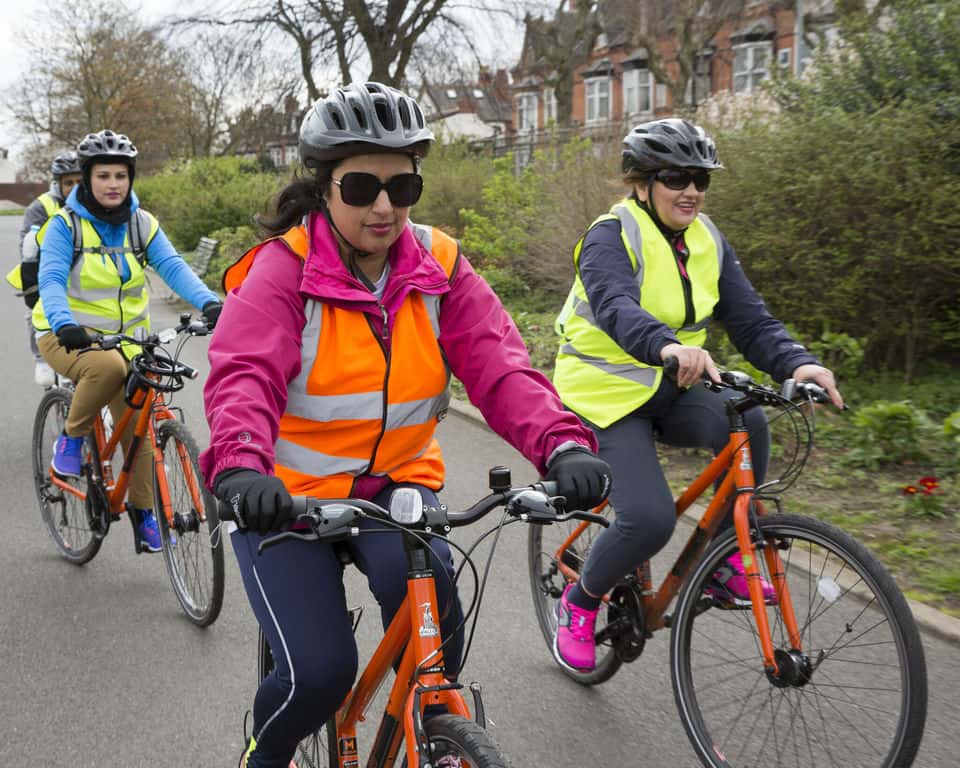Headlines on transport are often dominated by how the
country, and cities in particular, will manage the transition to consumer
electric vehicles. But congestion is a persistent scourge with health and
economic costs; one which electric vehicles won’t lessen. Congestion will also
be made worse by the ever-growing fleet of vans delivering our online shopping
and groceries. So cities need to look at broader ways of tackling congestion
and air quality.
On April 3 we gathered leaders from politics, business and
the NGO sector at our Ashden After Work event, and asked them how we’ll shift
to more sustainable modes of transport. The panel revealed their ideas and
projects for delivering cleaner, less
congested cities – some of which are already having a massive impact.
Road pricing and e-bikes could drive greener deliveries
Our expert panel agreed that highly convenient app-driven
taxi services and one-hour shopping deliveries are here to stay. One solution
to addressing the inevitable congestion is intelligent road pricing, where
drivers are charged according to when they travel, the distance covered and the
type of vehicle they are in.
New York has just implemented a $2.75 charge for
electronic-hail cabs to ride into the centre of Manhattan and Stockholm charges
higher rates during peak hours. Engineering and design firm Arup are working
with the Centre for London to devise a next generation road pricing scheme for
the city, where active transport is rewarded and more polluting transport
disincentivised.
Intelligent, distance-based road charging would certainly
penalise inefficient one-hour shopping deliveries. Long ‘point-to-point’
journeys from a delivery hub on the outskirts of town to your desk in a city
centre office would become very expensive.
And this is where alternatives to motorised delivery
vehicles, such as the e-cargo bikes used by logistics company Zedify, could
become really attractive. They are using micro-consolidation hubs on the edge
of city centres, from which a fleet of e-cargo bikes make final ‘last mile’
deliveries. The bikes take a surprisingly large load – up to 250 kg – and their
narrow width lets them glide past snarled-up traffic queues. Zedify’s business
is already growing fast; intelligent road pricing could make this growth
exponential.
An alternative to ‘scrap for cash’
Whilst there can be huge gains in tackling congestion,
increased costs for driving in our cities often penalise those on lower
incomes, who are more likely to be driving older, more polluting vehicles. The
gilets jaunes protests in France were triggered by proposed fuel tax rises – a
backlash that eventually resulted in the policy being reversed.


Sustainable energy
Sustainable Transport
Read more
The traditional approach for dealing with this is a scrappage
scheme, whereby drivers receive a lump cash sum. But the West Midlands Combined
Authority is exploring giving a mobility credit instead, which can be used on
public transport or at car-clubs and cycle hire schemes. With integrated
ticketing – where a single smart card (or bank card) can be used across all
travel modes – alternatives to car travel are made as user-friendly as
possible.
All of our panellists agreed that the ‘stick’ of road
pricing, combined with exhortations to ‘do the right thing’ when making travel
choices, is not sufficient – the alternative journey modes must be attractive.
This requires radical improvements to bus services that shake off the label of
the ‘poor person’s transport option’.
A recent report from the London Liberal Democrats on the
future of London buses argues that as well as stepping up their bus
electrification ambitions, cities should consider shorter, local bus routes
connecting people to faster, high-capacity services using bendy-buses on major
corridors. App-based on-demand bus services are also an option for the suburbs.
These are already being trialled in Oxford by Oxford Bus Company, longlisted
for this year’s Ashden Awards.
Aiming high brings cycle success
What about active transport? How do cities encourage people
to overcome their concerns about road safety and get on their bikes, or go
further by foot? Big ambitions are at the heart of a huge project by Waltham
Forest Council, that secured major funding from the Mayor of London five year
ago. The authority pledged to close swathes of roads to cars and create over
20km of new segregated cycle track.
Despite some very vocal opposition to the changes, the
council pushed through with their plans but broadened them to encourage
walking, introducing ‘Copenhagen’ crossings on nearly 100 roads and
transforming neighbourhood centres. These improvements have encouraged people
out of their cars, with research showing that on average residents are spending
an extra 41 minutes walking or cycling each week.
I think this is perhaps the most informed and thoughtful panel I’ve ever joined – bursting with ideas and solutions.
Chris Large, panel chair
Our panellists concluded that for the world to innovate in
transport and achieve modal shift – a large-scale move toward greener options – it is essential to involve a wider range of experts, moving beyond the usual
transport sector suspects. Whether its technologists, social scientists,
finance professionals, urban planners or environmentalists, a broader
perspective is needed to ‘co-create’ solutions that will change the way we
travel. If city leaders can get this right, the prizes on offer are huge – better respiratory health, reduced obesity, better access to employment,
increased productivity, and, of course, lower carbon emissions.
The panel for this event included Darren Shirley, the new
Chief Executive of the Campaign for Better Transport, Isabel Dedring, Global
Transport Leader at Arup (and previously Deputy Mayor for Transport in London),
Caroline Pidgeon, Chair of the London Assembly’s Transport Committee along with
two of our inspiring Ashden Awards 2019 longlisters – Waltham Forest Council
(represented by Councillor Clyde Loakes) and e-cargo bike delivery firm, Zedify. It
was chaired by Chris Large of Global Action Plan, who run the annual National
Clean Air Day.
- Hear more from the Ashden Award winners at our 2019 ceremony – tickets are on sale now.

